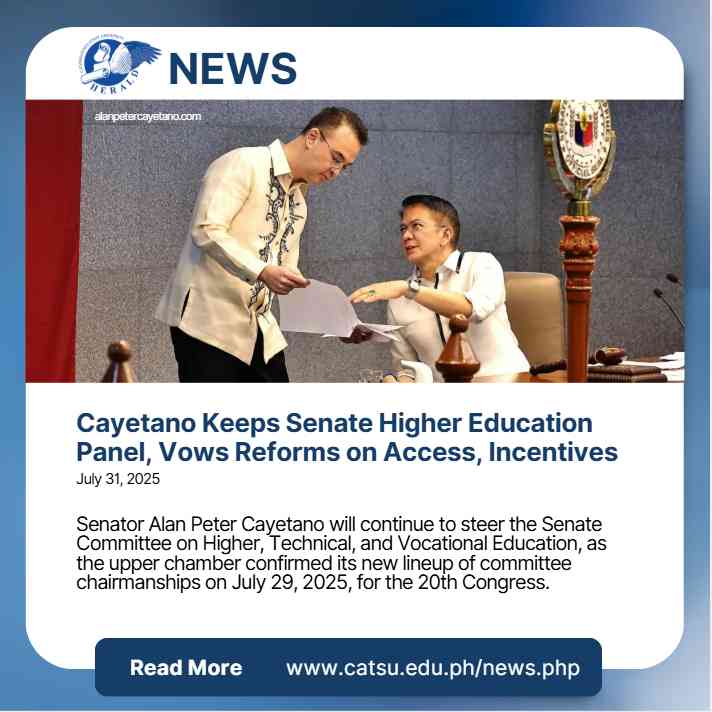
Senator Alan Peter Cayetano will continue to steer the Senate Committee on Higher, Technical, and Vocational Education, as the upper chamber confirmed its new lineup of committee chairmanships on July 29, 2025, for the 20th Congress. Under his watch, the panel is set to tackle the sector’s most pressing concerns including teacher welfare and student support programs, and streamlining of scholarships, grants, and other incentives to expand educational access. A consistent advocate of quality and inclusive learning, Cayetano held the same post in 2024. He has since filed several measures, which include the proposed “Makakapagtapos Ako Act of 2025.” The Act aims to eliminate financial hurdles that prevent students from completing their education. He also proposes key structural shifts by granting voting powers to DepEd, CHED, and TESDA chiefs, to upgrade their roles from mere advisers to full-fledged commissioners in his filed Senate Bill No. 3006, which seeks to establish the Third Congressional Commission on Education (EDCOM 3). In addition to the higher education panel, Cayetano was also appointed to head three other Senate standing committees: Accounts, Justice and Human Rights, and Science and Technology.
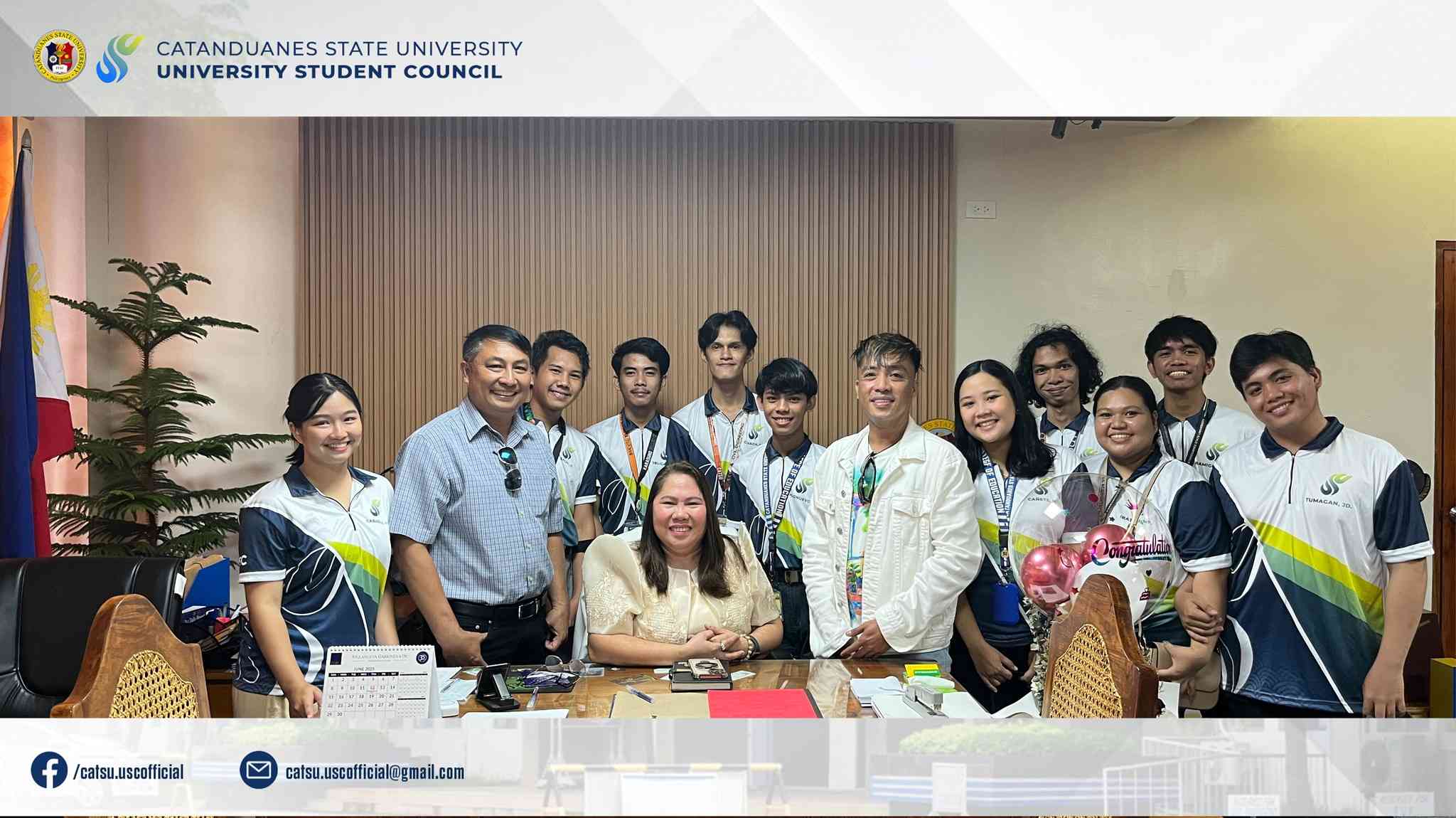
Catanduanes State University President Dr. Gemma G. Acedo reaffirmed her strong support for student leadership and engagement as she welcomed the officers of the University Student Council (USC) in a courtesy visit held on July 28. Leading the USC was Student Regent and USC President John Lester Templonuevo, joined by newly elected Council advisers John Cyrus Francis and Remelito Cabrera, who were chosen by the Council on July 24. During the meeting, the student leaders introduced their priority initiatives, including the proposed revision of the Student Handbook and a university-wide student profiling program. Dr. Acedo expressed her full backing for these efforts and commended the USC for its proactive agenda and openness to collaborative efforts that advance student welfare and institutional growth. Both Dr. Acedo and Regent Templonuevo had recently taken their oath before Commissioner Ethel Agnes P. Valenzuela during the 228th/2nd Quarter 2025 Regular Meeting of the CatSU Board of Regents held at Bicol University on July 17. Photo: USC
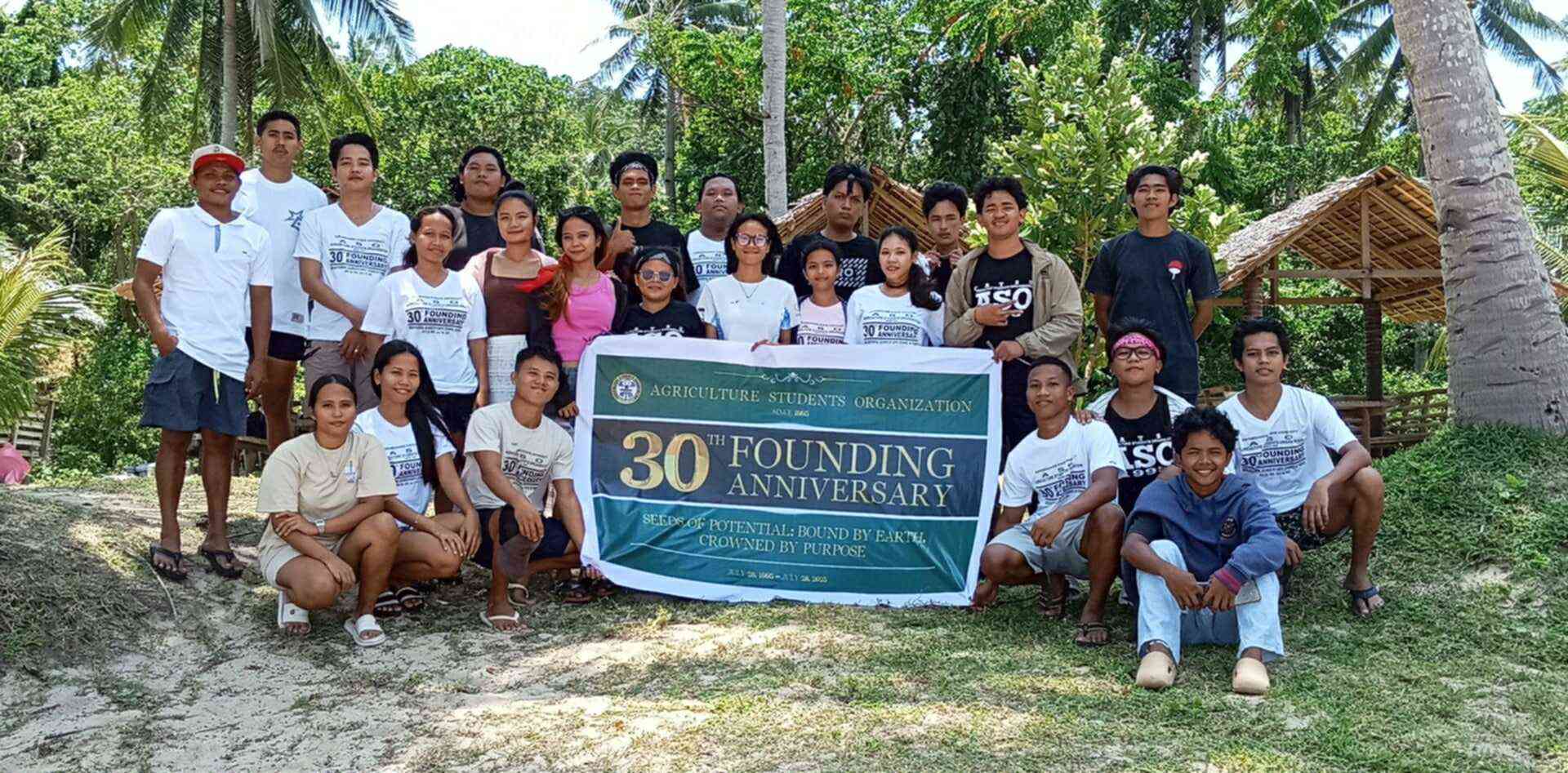
The Agriculture Students Organization (ASO) celebrated its 30th founding anniversary on July 28, highlighting three decades of leadership, service, and student-led initiatives at the College of Agriculture and Fisheries (CAF). Dean Dr. Michael Owen P. Malijan, who founded the organization as a sophomore student on July 28, 1995, has a message to current and future members, urging them to stay true to ASO’s founding principles. “Influence future generations to be effective and efficient leaders, be good followers, and promote volunteerism. Live and spread the ASO objectives,” Malijan said. ASO was established to promote unity among CAF students, serve rather than be served, and implement useful and tangible projects. Since its founding, the organization has led various initiatives such as the construction of the ASO building, the installation of waiting sheds, and tree-planting activities within the university and in nearby elementary schools across the province. The organization also holds a monthly feeding program every 28th of the month and responds to community needs through relevant outreach activities. In a recent show of support for sustainable agriculture, ASO donated three native piglets and a sack of commercial feeds to the College last April 2025—further strengthening its commitment to hands-on agricultural development. As ASO marks this milestone, Dean Malijan’s call serves as a reminder for student leaders to continue fostering unity, service, and purposeful action for the betterment of the college and the wider community.
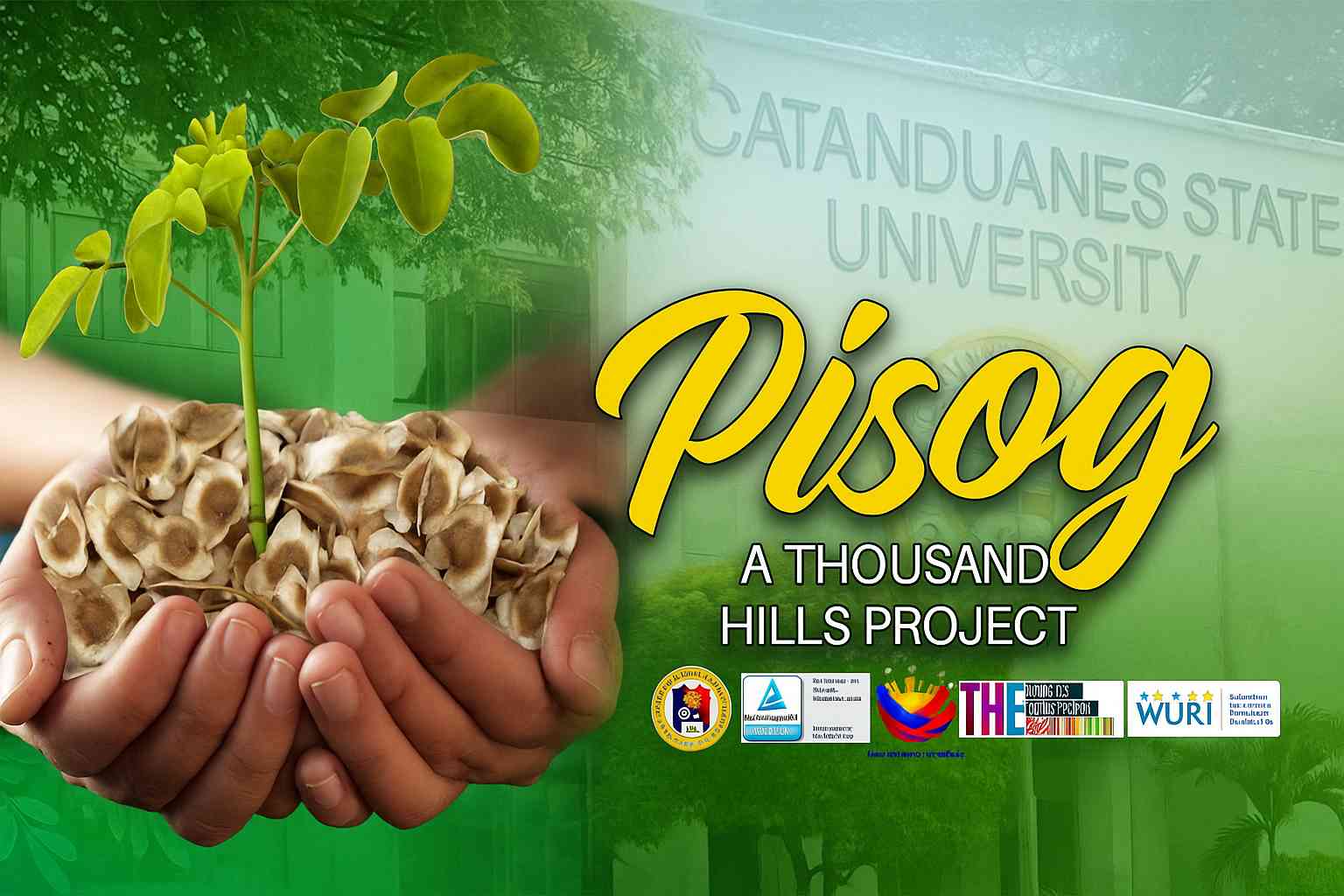
Catanduanes State University (CatSU) is turning the humble green malunggay tree into a gold powerhouse of health, sustainability, and community empowerment. Dubbed “Pisog: A Thousand Hills Project,” this province-wide initiative is more than a greening effort—it’s a nutritional lifeline, and a bold step toward climate resilience. Led by former Officer-in-Charge Dr. Roberto B. Barba, Jr., and Project Coordinator Aileen S. Llandellar, CatSU’s campaign began on July 21–22, 2024, with the collection of malunggay cuttings from selected schools in Virac, San Andres, Caramoran, and Pandan. The collection efforts are set to continue in the coming days, expanding to more DepEd schools across the province. Thanks to a partnership with the Department of Education (DepEd), through Division Memorandum No. 520, s. 2025, schools across the island are encouraged to donate malunggay cuttings and seeds, becoming active participants in the growing movement of the University. But this green gold mission doesn’t stop at school fences. CatSU has also partnered with the Department of the Interior and Local Government (DILG) – Catanduanes to engage barangays across the province. Everyone—from teachers and students to farmers and families—will now be part of a living, and breathing network of sustainability. 𝗠𝗮𝗹𝘂𝗻𝗴𝗴𝗮𝘆: 𝗧𝗵𝗲 𝗧𝗿𝗲𝗲 𝗧𝗵𝗮𝘁 𝗚𝗶𝘃𝗲𝘀 𝗔𝗹𝗹 Often called the “miracle tree,” Moringa oleifera (locally known as malunggay) is far more than a backyard staple. “Malunggay isn’t just a vegetable—it’s a holistic health solution,” says Ms. Llandelar. Its leaves are a nutritional treasure trove: 7x more Vitamin C than oranges, 10x more Vitamin A than carrots, 17x more calcium than milk, 9x more protein than yogurt, 15x more potassium than bananas, and 25x more iron than spinach (Gopalakrishnan et al., 2016). According to a comprehensive review by Gopalakrishnan et al. (2016), moringa leaves, seeds, pods, and even roots possess remarkable medicinal properties, including antioxidant, anti-inflammatory, antidiabetic, and antimicrobial effects. It’s also used to treat malnutrition, augment breast milk, and purify drinking water. With such a profile, it’s no wonder moringa has earned the title of panacea, capable of addressing over 300 known diseases. 𝗜𝗻𝗻𝗼𝘃𝗮𝘁𝗶𝗼𝗻 𝗶𝗻 𝗘𝘃𝗲𝗿𝘆 𝗟𝗲𝗮𝗳 CatSU is thinking beyond planting. On its Tibang Farm—the project’s main propagation site—researchers will be exploring how malunggay can be transformed into capsules, teas, fortified food products, and organic powders. This opens a promising economic horizon for local entrepreneurs and communities. What’s more, every part of the plant has value: leaves for food and medicine, seeds for oil and water purification, branches and stems for compost or fuel, and roots and bark for traditional healing. This zero-waste approach embodies the project’s ethos of sustainable, and inclusive development. 𝗙𝗿𝗼𝗺 𝗚𝘂𝗹𝗮𝘆𝗮𝗻 𝘁𝗼 𝗚𝗹𝗼𝗯𝗮𝗹 𝗩𝗶𝘀𝗶𝗼𝗻 The Pisog initiative aligns closely with the Gulayan sa Paaralan Program (GPP) and School-Based Feeding Program (SBFP), first promoted under DepEd Memorandum No. 238, s. 2008. But while those programs focused on supplementing school nutrition, CatSU’s initiative elevates malunggay to the frontlines of public health and climate adaptation. By involving educational institutions and local governments, the project fosters a grassroots model of sustainability. From planting trees to producing health supplements, the community is not just participating — it’s co-creating the future. 𝗦𝗼𝘄𝗶𝗻𝗴 𝗦𝗲𝗲𝗱𝘀 𝗼𝗳 𝗥𝗲𝘀𝗶𝗹𝗶𝗲𝗻𝗰𝗲 Malunggay grows fast and thrives in hot, humid climates like Catanduanes. Its resilience against drought and poor soil makes it a perfect green ally in the fight against climate change and food insecurity. More importantly, it plants more than just trees—it plants purpose, especially among the youth. By integrating this effort into schools and barangays, CatSU is cultivating a culture of responsibility and innovation. 𝗔 𝗚𝗿𝗲𝗲𝗻𝗲𝗿, 𝗛𝗲𝗮𝗹𝘁𝗵𝗶𝗲𝗿 𝗧𝗼𝗺𝗼𝗿𝗿𝗼𝘄 As thousands of malunggay trees would take root across the province, these would also plant thousands of hopes — for a healthier population, empowered communities, and an economy grounded in sustainability. The Pisog project proves that sometimes, the most extraordinary solutions come from the most ordinary places—a backyard tree, a school garden, a university campus. In the future, malunggay won’t just be a staple on every Catandunganon family’s table — it will be a symbol of a greener, healthier, and more resilient province. So the next time you pass a malunggay tree, remember: it may look ordinary, but it’s quietly changing the world. 𝗦𝗼𝘂𝗿𝗰𝗲: Gopalakrishnan, L., Doriya, K., & Kumar, D. S. (2016). Moringa oleifera: A review on nutritive importance and its medicinal application. Food Science and Human Wellness, 5(2), 49–56. https://doi.org/10.1016/j.fshw.2016.04.001
The Catanduanes State University (CatSU) College of Business and Accountancy – Entrepreneurship Department revved up efforts to elevate its CatSU Entrepreneurship Incubation Center (CEIC) through a benchmarking tour across Bicol, July 13–18, 2025. Backed by Board Resolution No. 94, s. 2024, which greenlit CEIC’s creation and operations manual, the faculty team scouted best practices from top incubation centers in the region. The team included CEIC Coordinator Vivienne Mae Rubio-Valenzuela, MBA; Ma. Gazel C. Briñes, MBA; Kristopher T. Visaya, MEntrep (Incubation Analyst); Ma. Concepcion V. Marquez, Ph.D.; John Edmund P. Manlagñit (Custodian); and Ranelyn A. Francisco. The group tapped key sites: Camarines Norte State University’s Food Service Lab and Incubation Center (Daet); CSPC Incubation Center (Nabua); TIGRE Hub at Naga College Foundation; Ateneo de Naga University’s TBI; and Bicol University’s SILDIC (Daraga). The trip aimed to sharpen CEIC’s business plan implementation policy and sync its startup strategies with industry-tested incubation models. CEIC extends thanks to its partner institutions for sharing insights and backing CatSU’s push to nurture future entrepreneurs.
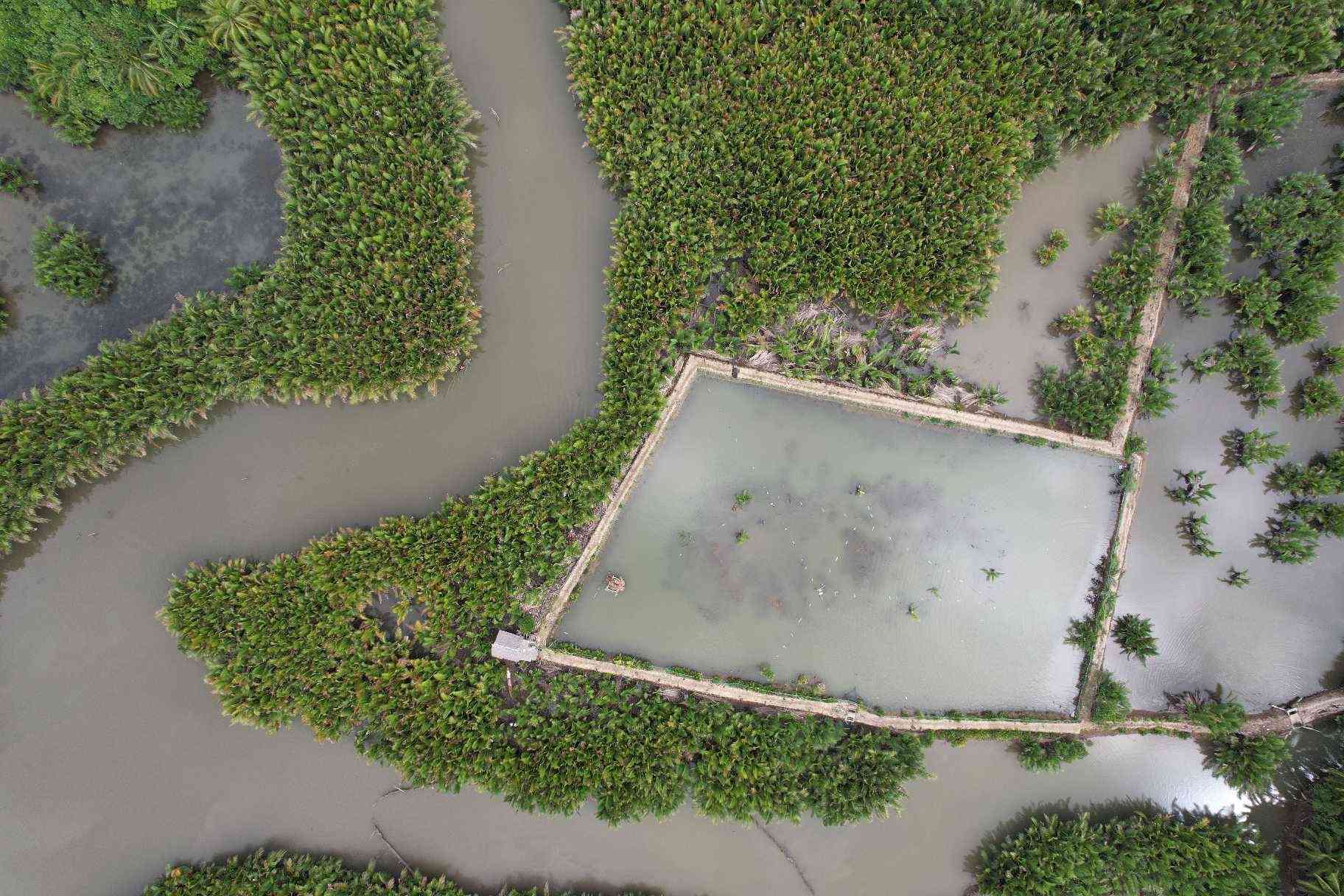
n Catanduanes, where the coastline tells stories of both abundance and adversity, a quiet revolution is underway—one shaped not by storms, but by the steady, purposeful work of a community coming together to reclaim its future. At the center of this movement is a powerful partnership between Catanduanes State University’s ACE-HEMS program—Academe for Community Empowerment through Holistic and Ecosystem-based Approach for Mangrove Crab Sustainability—and the international humanitarian tech organization, HELP.NGO. What began as a university-based initiative has grown into something far-reaching and deeply rooted in community action. Using drones, open-access digital maps, and on-the-ground engagement, this partnership is redefining how research translates into resilience. For coastal communities facing the harsh realities of climate change, it's not just about reacting to disasters—it's about preparing for the future, informed by data, guided by science, and anchored in local knowledge. Thanks to drone-generated images and digital mapping, researchers, fisherfolk, and local leaders are seeing their environment with new clarity. Areas once left undocumented—mangrove patches, erosion-prone zones, crab habitats—are now carefully charted and studied. These tools have empowered a series of research breakthroughs, from integrated aquaculture systems that replicate natural ecosystems, to conservation efforts that highlight rare marine species like the lamp shell Lingula unguis or “ugpang.” In Pandan, one of the island’s northern municipalities, these innovations have gone a step further—supporting the local government's proposals for funding under the People Survival Fund. With the backing of ACE-HEMS’ drone data and HELP.NGO’s technical assistance, the community was able to present evidence-based plans to national agencies, bringing them one step closer to climate-adaptive infrastructure and livelihoods. But at the heart of all these efforts is a concept that’s becoming something of a rallying cry in Catanduanes: Mangrovization. Coined in the terminal report of the ACE-HEMS program, Mangrovization goes beyond environmental jargon. It represents a holistic, science-grounded, and community-driven strategy for protecting and restoring mangrove ecosystems. It’s a response to deforestation, biodiversity loss, sea-level rise, and other climate-related threats—but it also speaks to something more profound: a way of empowering coastal communities to co-manage their ecosystems and participate meaningfully in decisions that shape their future. It’s a model that thrives on collaboration. Academic institutions, people’s organizations, fisherfolk associations, and local governments come together to not only plant mangroves, but to build a deeper relationship with the land and water that sustains them. Mangrovization draws insight from political ecology and the theory of social representations, offering a framework where community perception and scientific understanding intersect. The results have not gone unnoticed. At the 2024 UN Ocean Decade Conference in Barcelona, ACE-HEMS earned international attention. Supported by HELP.NGO and represented by the Cabuyoan Fisherfolk Association led by Mr. Joey Fernandez, the CatSU team presented their work on mangrove crab sustainability—showcasing how technology and community leadership can come together in service of a shared goal. Their message was simple but powerful: resilience is possible when communities are equipped, informed, and heard. Looking ahead, the partnership is preparing for its next phase. Under the CHED-funded SURMABIOCON project, findings and protocols from ACE-HEMS and Mangrovization will guide new climate adaptation efforts in Pandan and beyond. Meanwhile, upcoming CatSU-led research will delve into regenerative tourism, sustainable seafood practices, and food innovation centered on local crops like breadfruit and root vegetables. HELP.NGO has committed to continuing its technical support for these faculty-driven initiatives. All of this underscores a fundamental shift. In Catanduanes, climate resilience is no longer just about bracing for the next storm. It’s about building systems that last—ecological, social, and institutional. It’s about seeing mangroves not just as buffers, but as bridges between science and society.
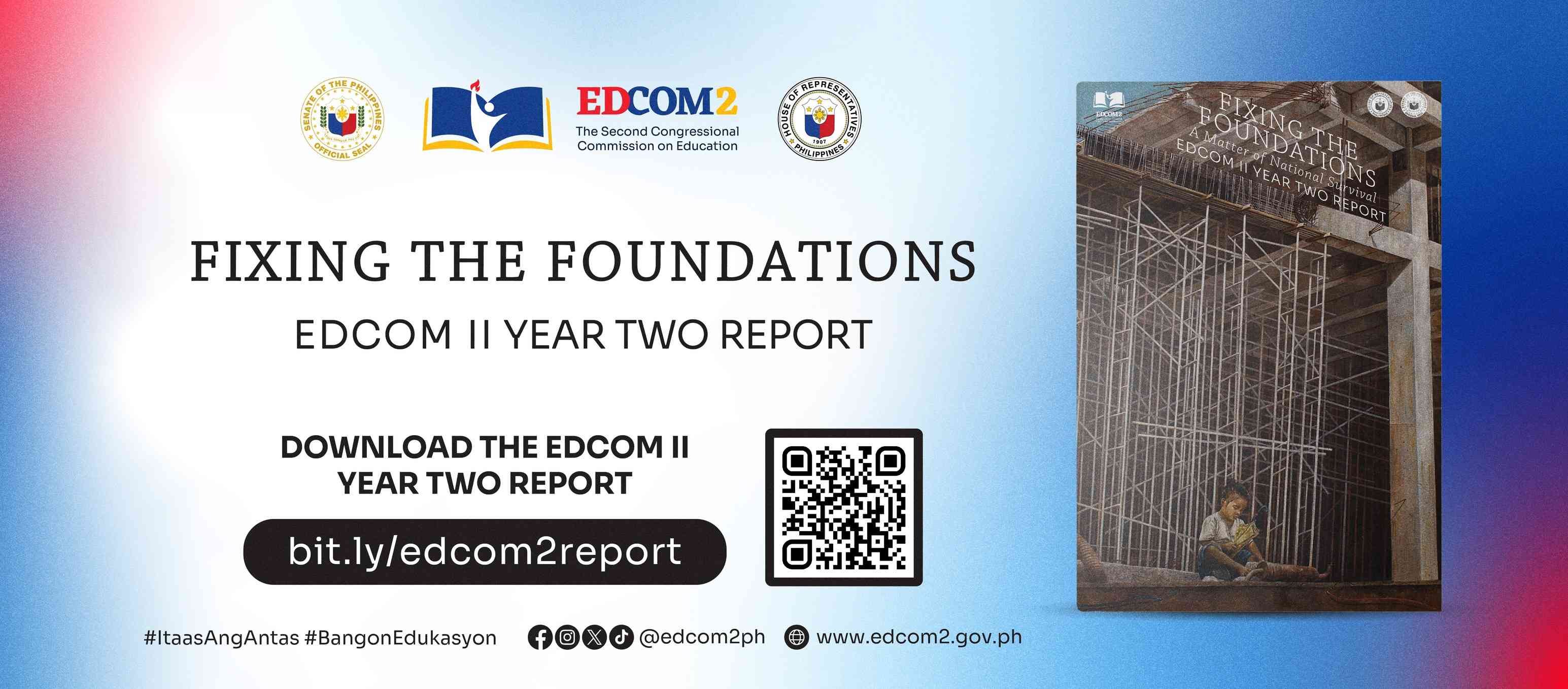
The Second Congressional Commission on Education (EDCOM 2) is intensifying its efforts to evaluate the country’s education sector, holding a series of hearings this July in compliance with Republic Act No. 11899. The Commission is conducting comprehensive assessments of the performance, policies, and programs of the Commission on Higher Education (CHED), the Department of Education (DepEd), and the Technical Education and Skills Development Authority (TESDA). Formed under RA 11899 and formally convened in 2023, EDCOM 2 is mandated to undertake an extensive national review of the Philippine education system and recommend transformative reforms. The ongoing hearings are part of the Commission’s structured inquiry into sectoral performance, governance, and alignment of learning outcomes with labor market needs. The commission’s hearings in July 2025 focus on strategic performance reviews of the three major education agencies. Key topics under scrutiny include institutional coordination, access and equity in education, public financing efficiency, curriculum reforms, teacher quality, and digital transformation. According to EDCOM 2’s official timetable, the final report is expected to be released in the fourth quarter of 2025, culminating two years of data gathering, public consultations, field visits, and expert briefings. EDCOM 2 is co-chaired by Senator Sherwin Gatchalian and Representative Roman Romulo, with support from the EDCOM 2 Advisory Council composed of experts in education, labor, economics, and governance. The Commission operates with the technical assistance of the EDCOM 2 Secretariat and the research arm known as the Education, Policy, and Innovation Center (EPIC). In an earlier public statement, EDCOM 2 highlighted that its final recommendations aim to guide long-term education reform and align Philippine education outcomes with national development priorities and global competitiveness standards. For more updates and official schedules, visit https://edcom2.gov.ph.

Commission on Higher Education (CHED) Chairperson Dr. Shirley C. Agrupis unveiled her flagship initiative, the ACHIEVE agenda, in a formal launch on July 20, setting the tone for a results-driven and globally aligned direction for Philippine higher education. Taking office on May 29, 2025, Agrupis brings with her a track record of academic leadership as former president of Mariano Marcos State University (MMSU) and CHED Commissioner since September 2024. Her appointment marks a new chapter in CHED’s leadership, now guided by a framework aimed at institutional transformation, international relevance, and sectoral resilience. The ACHIEVE agenda outlines seven key thrusts: Academic excellence; Creative, relevant and innovative research programs; High-impact and transformative extension and outreach programs; Improved revenue generation and resource management; Expanded external linkages and partnerships; Vibrant and engaging, culturally focused university campus; and Effective and efficient management. It serves as a comprehensive response to the systemic challenges confronting state universities and colleges (SUCs), including persistent funding constraints, low research productivity, and limited internationalization. Under Agrupis’ leadership, CHED aims to promote evidence-informed governance, encourage higher education institutions to pursue international quality assurance, and foster academic programs that are responsive to labor market needs. The ACHIEVE framework also underscores the importance of community engagement and the cultural relevance of higher education campuses, calling for a more holistic development of Filipino learners in both local and global contexts. The agenda's launch is also seen as part of CHED’s broader alignment with global education frameworks, including the United Nations Sustainable Development Goals. Earlier this month, CHED and select Philippine HEIs participated in the International Quality Assurance Programme (IQAP) in London—one of the early steps toward the operationalization of the ACHIEVE vision. As the country faces increasing demand for globally competent graduates, digital transformation, and more inclusive access to education, the ACHIEVE agenda is poised to serve as the central strategy for steering higher education institutions toward meaningful, sustainable progress under Agrupis’ term. Operational guidelines and institutional consultations are expected to roll out in the latter half of the year, as CHED moves to translate the ACHIEVE principles into measurable outcomes across the higher education sector.
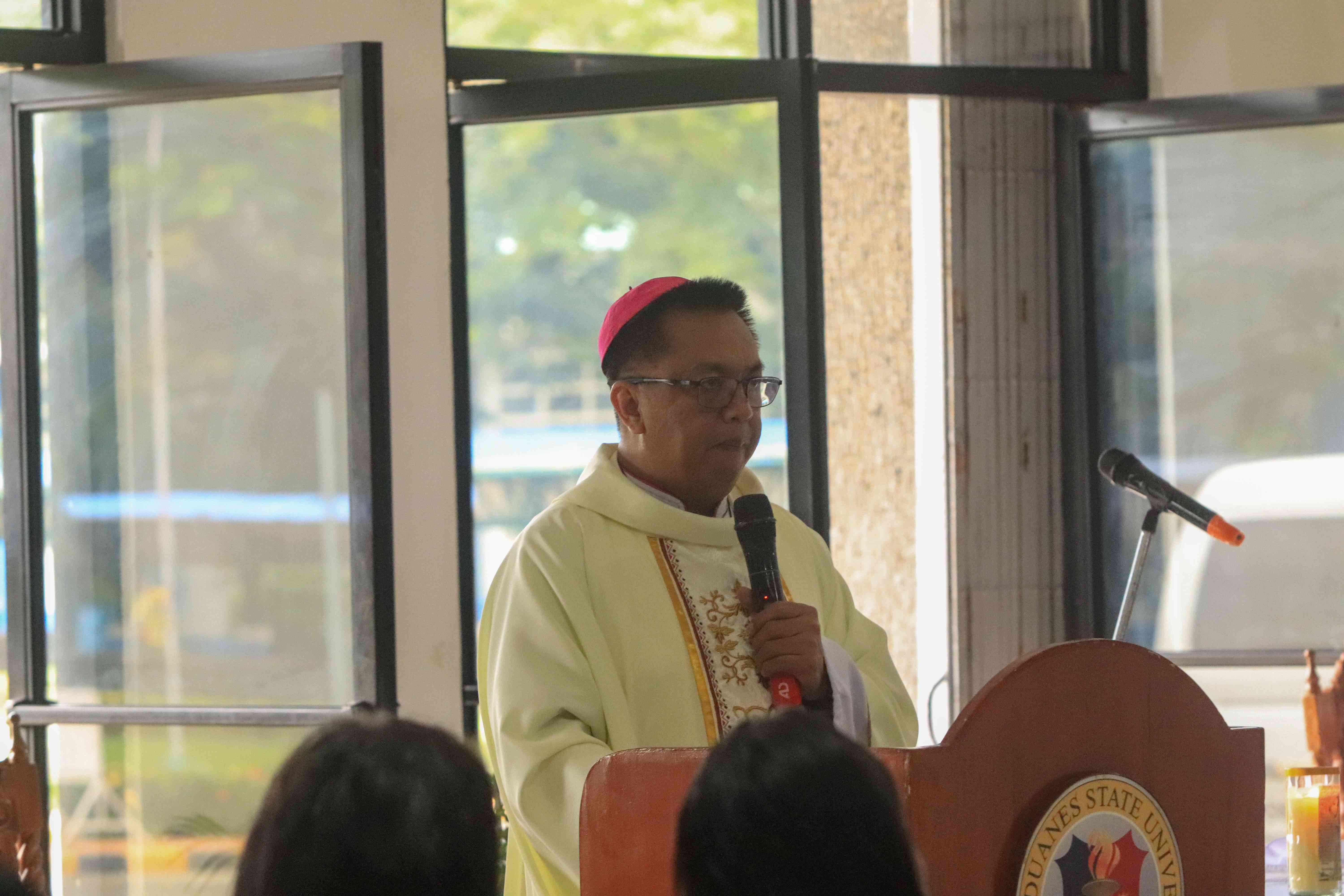
Presiding over The Eucharist on July 21, 2025, His Excellency Most Rev. Luisito A. Occiano, DD, Bishop of Virac, gave a homily that reframed the ancient journey of Moses and the Israelites as a roadmap for modern leadership—especially for someone tasked with running a university. The Mass, offered in thanksgiving by newly sworn-in CatSU President Dr. Gemma G. Acedo, was part of her first official week at the Office of the SUC President III. The bishop’s message gently pivoted from Scripture to present-day CatSU: “Like Moses, a university president must walk with people—sometimes hesitant, often weary—toward a promised future,” he said. "There will be Red Seas.” With a warmth that peeled back the usual weight of homilies, Bishop Occiano mused about the modern ‘red seas’ that might block progress—tight budgets or strained relationships. The bishop emphasized that leadership is an act of trust—trust not only in one’s own abilities, but also in the people one walks with, and in the unseen grace that carries a leader forward, especially when the path remains uncertain and the challenges don't ease right away. For Dr. Acedo, the Mass served as a meaningful and grounding moment as she begins the journey of guiding CatSU toward its next chapter. The bishop left the community with a reminder that challenges—like the Red Sea—are not dead ends, but pathways. With faith and courage, every crossing becomes possible.
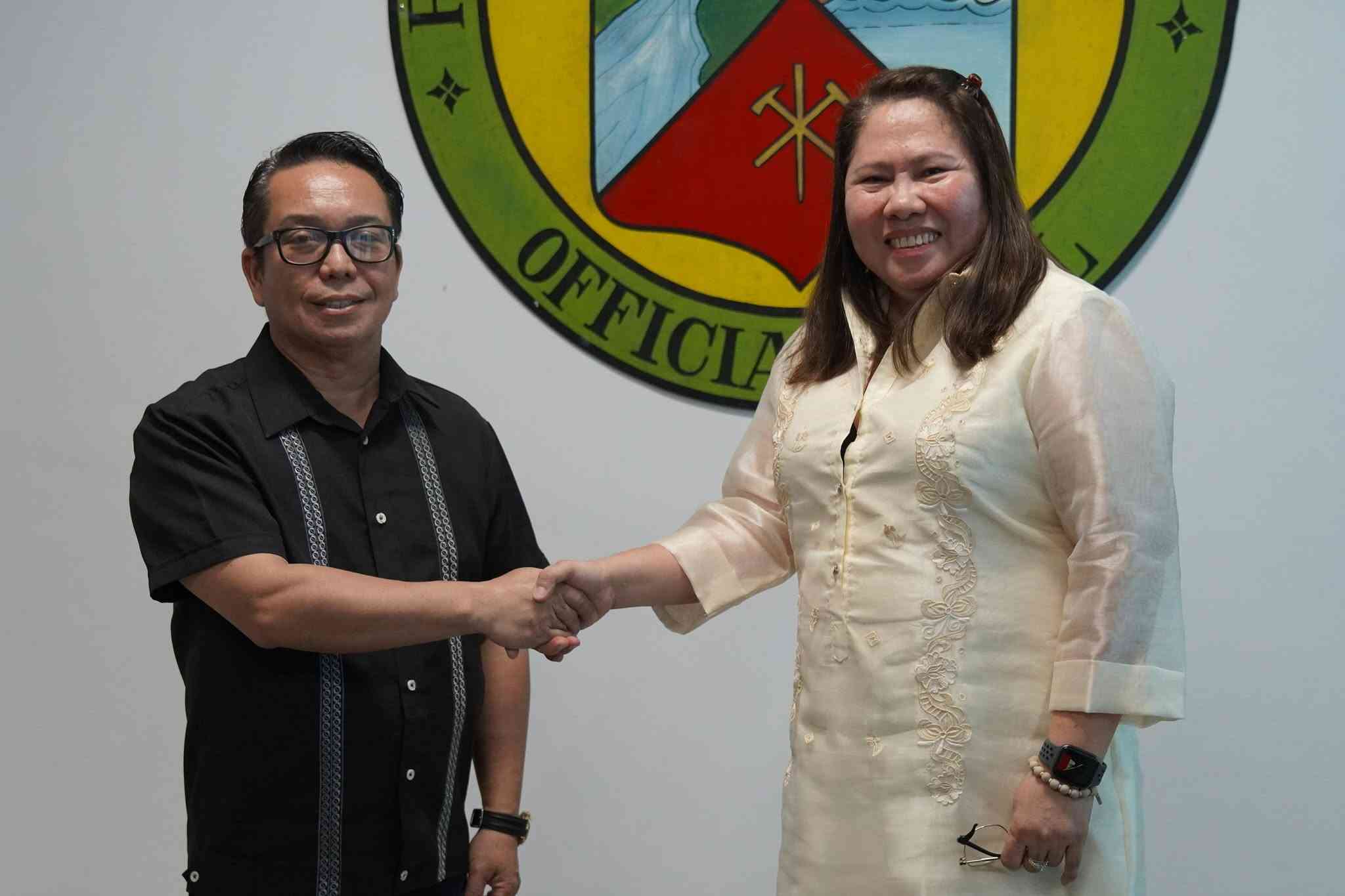
Catanduanes State University President Dr. Gemma G. Acedo paid a courtesy visit to Governor Patrick Alain T. Azanza today at the Provincial Capitol, reinforcing the growing partnership between the academe and the local government. Both champions of research, innovation, and academic globalization, Dr. Acedo and Governor Azanza expressed mutual commitment to deepening institutional collaboration in pursuit of sustainable development for Catanduanes. Their discussion centered on joint initiatives that will leverage education and governance to improve the quality of life for the island’s communities. The visit marks a renewed synergy between CatSU and the Provincial Government, as both leaders vowed to work hand-in-hand in translating academic knowledge into meaningful local impact.
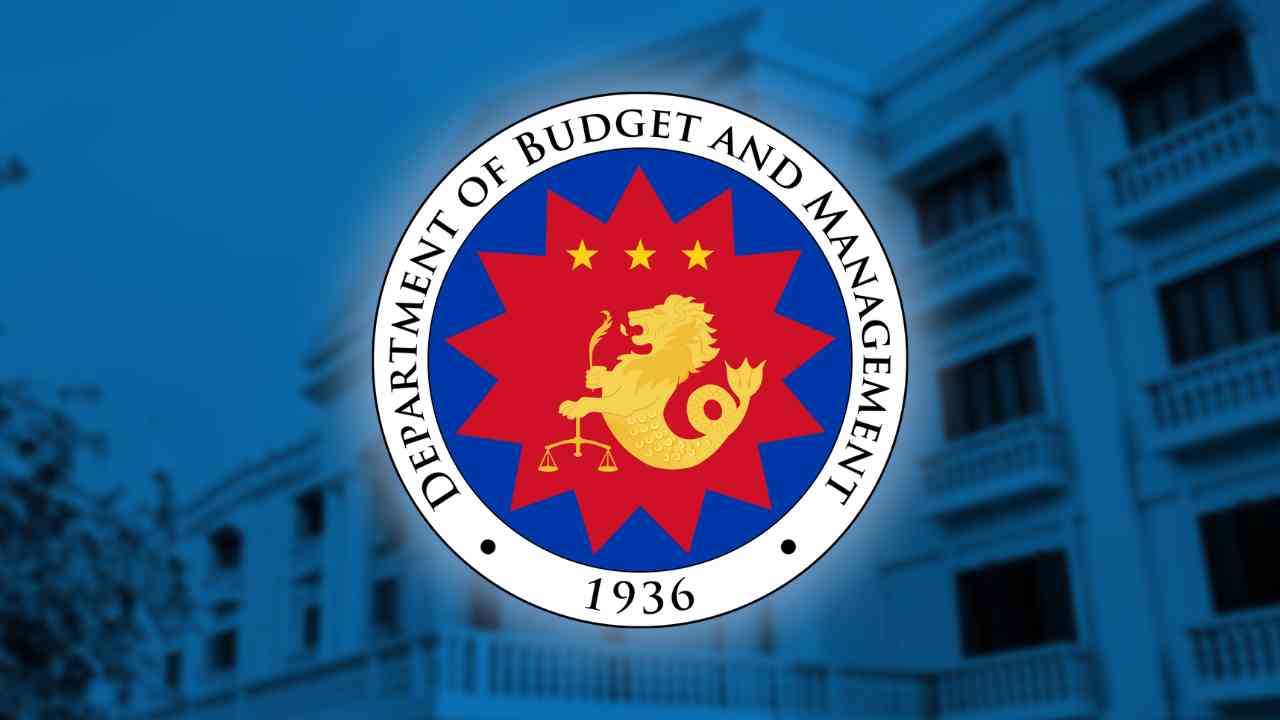
The Department of Budget and Management (DBM) has issued National Budget Circular (NBC) No. 598, dated July 15, 2025, outlining the “Revised Organization and Staffing Standards (OSS) for SUCs – Phase II.” This new directive provides the general policies and implementation guidelines for the second phase of the revised OSS, specifically covering two critical areas in State Universities and Colleges (SUCs)—the Office of Research and External Linkages and the Auxiliary Services. NBC No. 598 builds on the previous phase of OSS reform, aiming to rationalize, professionalize, and strengthen institutional staffing structures aligned with evolving mandates of SUCs in research, innovation, and external partnerships, as well as support services critical to student welfare and campus operations. The circular provides the detailed staffing patterns and position standards that SUCs may adopt, subject to evaluation and approval by DBM, and is seen as part of broader efforts to enhance operational efficiency, functional relevance, and human resource development within the higher education sector. DBM emphasized that the implementation of the revised OSS must observe fiscal discipline, adhere to the principles of merit and fitness, and remain consistent with national development priorities.
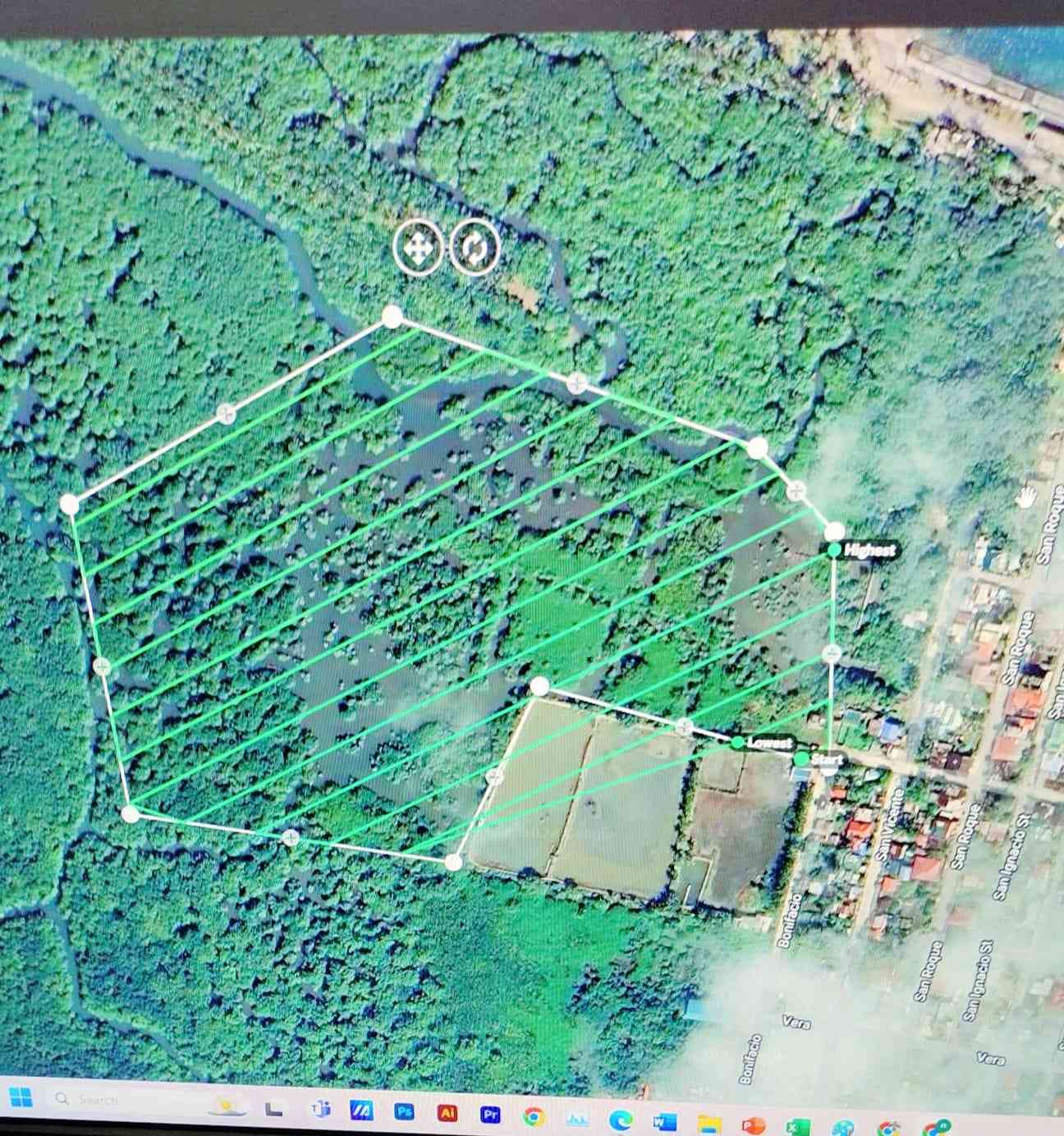
With former councilor Michael Tidon as the Lead Proponent, the Municipality of Pandan clinched a major climate win—₱86.1 million from the People’s Survival Fund (PSF)—greenlit during the 23rd PSF Board Meeting chaired by the Department of Finance on July 18. The project, endorsed by the Climate Change Commission, was backed technically and scientifically by the ACE-HEMS Program of Catanduanes State University, led by Professor VI Dr. Jimmy T. Masagca. Tidon, lead proponent for the LGU, said the proposal addresses both storm surge and drought risks—challenges long faced by Pandan’s coastal and upland farmers. The PSF grant covers the twin-pillar initiative: mangrove rehabilitation in six barangays and climate-smart farm infrastructure that includes solar irrigation, gravity-fed water systems, and greenhouses. A mangrove nursery in Brgy. Balagñonan and a new agri-learning center are also in the pipeline. Over 1,200 local residents stand to benefit, including fisherfolk and farmers linked to 30 people’s organizations across the municipality. In a related development, Baras town also moves forward with its own ₱7-M PSF proposal, now up for field appraisal—another mangrove-driven climate solution in the works, also guided by CatSU’s climate science experts. Pandan's funding approval places Catanduanes in the national spotlight as a rising model in grassroots climate resilience, with the University, local government, and community groups working in stride.




